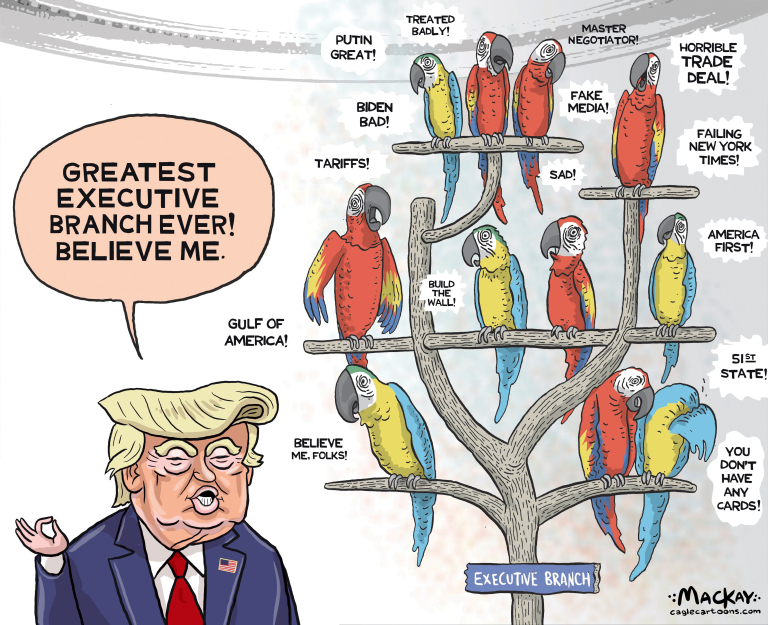
Trump’s cabinet is characterized by loyalty-driven appointments, where fealty often overshadows expertise, raising concerns about governance integrity.
The Dynamics of Loyalty and Flattery in Trump’s Cabinet
In the political landscape shaped by Donald Trump, the dynamics of loyalty and sycophancy have played a defining role in his administration’s composition and functioning. Trump’s cabinet has been noted for its members’ pronounced loyalty and willingness to echo his policies and rhetoric, often prioritizing allegiance over expertise.
Many of Trump’s appointees and advisors were handpicked not only for their qualifications but also for their unwavering support and public praise of his leadership style. This environment fostered a culture where flattery and alignment with Trump’s views were seen as essential for maintaining favor and position within the administration.
Critics have argued that this dynamic led to a lack of critical debate and dissent, with cabinet meetings often resembling orchestrated sessions of praise. Notable instances include early cabinet meetings where members took turns lauding Trump’s accomplishments and leadership. This ritualized flattery mirrored gatherings hosted by Trump’s former lawyer, Roy Cohn, though with a more obligatory tone.
The emphasis on loyalty over expertise also contributed to frequent turnover within the cabinet. Those who failed to demonstrate sufficient allegiance or who challenged Trump’s views often found themselves replaced. This approach has raised concerns about the implications for governance and policy, with critics from both sides of the political spectrum expressing alarm over the potential erosion of institutional integrity.
As Trump continues to influence American politics, the legacy of his cabinet’s dynamics offers a cautionary tale about the balance between loyalty and independent counsel in the corridors of power.
For further insight
















